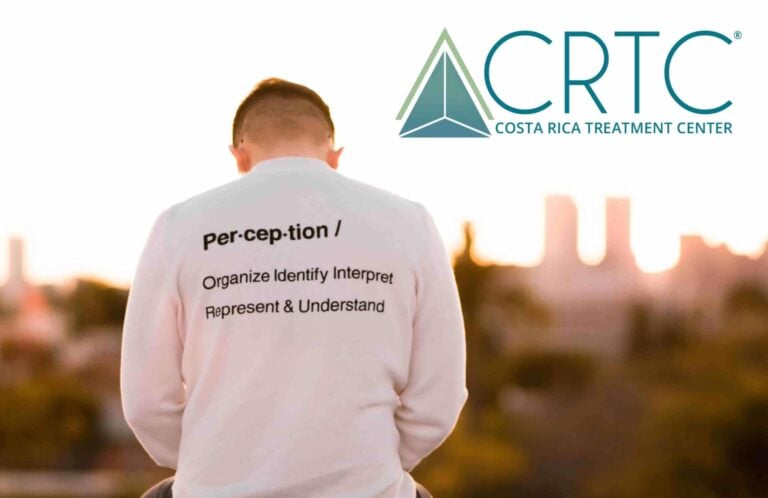Internal Family Systems Therapy, more popularly known as IFS Therapy, is a distinct approach to psychotherapy that was developed in the 1990s by Dr. Richard…
Internal Family Systems Therapy, more popularly known as IFS Therapy, is a distinct approach to psychotherapy that was developed in the 1990s by Dr. Richard C. Schwartz, Ph.D. It is an evidence-based model of psychotherapy that has gained significant popularity among mental health professionals due to its unique theoretical perspective and successful treatment outcomes.
IFS is based on the premise that humans comprise several parts of their psyche. These parts can be positive or negative, but each has some function in our daily lives. The most important aspect of IFS is that it views the “Self” as the central concept of healing. The Self is the person’s true essence, representing the core of the individual’s being.
In IFS, the therapist operates on the assumption that the Self can communicate and build relationships with the different parts. This communication is known as “Self-to-Part” or “Part-to-Self” dialogues. The therapist helps the patient to recognize and understand the various parts of themselves and their function in their daily life. The goal is to help the patient integrate the positive parts and transform the negative ones for optimal health and functioning.
Throughout this guide, we will explore the principles and techniques of IFS in detail. We will discuss how IFS can help treat mental health conditions. So, keep reading!
Basic Assumptions of the IFS Model

The Internal Family Systems (IFS) model is based on several basic assumptions that serve as the foundation for its therapeutic approach. These assumptions include the recognition that humans are composite beings made up of multiple “parts” that make up our psyche. These parts are self-contained systems within us that have their own perspectives, beliefs, emotions, and behaviors.
The Internal Family Systems model holds that each part has an integral and valuable role to play in our lives, even if sometimes it can be negative or limiting. Here are some basic assumptions:
- Every individual has a central, unchanging aspect of their personality called the “Self.”
- The self is the core, guiding principle of who we are, and it is responsible for the overall well-being of our entire system.
- The IFS model operates on the belief that these parts interact with each other within a person’s internal system.
- The IFS model emphasizes that every part is valuable and has good intentions, even if sometimes it’s hard to see this.
- One of the key principles of the IFS model is that patients can learn to manage their parts with Self-leadership.
The Self in IFS Therapy

IFS therapy focuses on exploring and understanding the internal parts of an individual’s psyche. Through this therapy, individuals can access their Self, which acts as the core or center of their being. Let’s explore the eight C’s and the 5 P’s composed in Self:
Eight C’s of Self
- Curiosity
- Compassion
- Calmness
- Clarity
- Confidence
- Creativity
- Courage
- Connectedness
These eight qualities represent the essential nature of the Self and are a way to identify when a person is connected to their Self. When a person embodies the qualities of the Self, they are able to access and integrate their various parts, including their internal “exiles” and “protectors.” Individuals who can connect with their Self often experience profound healing.
Five P’s of Self
- Perspective
- Presence
- Playfulness
- Purpose
- Patience
These 5 P’s of Self are the actions a person would take when connected to their Self. Perspective refers to the ability to see different viewpoints without being restricted by a single perspective. Presence refers to awareness of one’s inner experience and the present moment.
Moreover, playfulness refers to the ability to have fun and approach challenges with a non-serious attitude. Purpose reflects having a sense of direction and goals in life, while Patience means accepting the pace of change and transformation without forcing it.
Ultimately, the Five Ps and Eight Cs comprehensively understand the Self in IFS therapy. Combining them together, they represent a roadmap for a person to access their Self, gain clarity and inner harmony, and become more resilient in their daily life. By practicing and embodying these qualities, clients can access their Self and experience deep healing, personal growth, and transformative change.
Techniques of IFS Therapy
IFS therapy is based on the idea that the human psyche is created up of a multitude of different parts. While there may be infinite parts within the Self, these components can be broadly divided into three main types: firefighters, managers, and exiles.
Firefighter parts
These parts are protective instincts that we develop to cope with difficult situations or emotions. They react quickly and forcefully to threats and are responsible for keeping us safe at the moment. Basically, firefighter parts are characterized by impulsive or reactive behaviors that can ultimately cause harm if left unchecked. Although they can be easily activated by triggers and may cause impulsive reactions, they are also considered protectors.
Moreover, these parts can manifest in various ways, including addiction, self-harm, or dissociation. In IFS Therapy, these parts are seen as necessary to protect us from overwhelming experiences. However, if they are not properly understood and integrated into the self, they can become a source of distress and dysfunction.
IFS Therapy emphasizes the importance of understanding and working with firefighter parts in order to integrate them into the self. By doing so, clients can learn to recognize and regulate these reactive behaviors and ultimately develop a greater sense of emotional balance, stability, and personal growth.
Manager parts
As the name hints, manager parts are responsible for managing the emotions and actions of an individual. They are the certain part of us that take a more strategic and methodical approach to problems, aiming to keep them safe from perceived threats. Manager parts can take on various forms, from self-criticism to anxiety to compulsions, and are often seen as protective mechanisms.
When the manager parts have become overly dominant in an individual’s psyche, they can lead to negative patterns of behavior that can cause distress and dysfunction. This may result in an individual feeling overly controlled by their Manager parts and unable to access other aspects of themselves that can provide a more balanced perspective.
In Internal Family Systems Therapy, the goal is to identify and engage with Manager parts in order to understand their motivations and work towards more balanced functioning. This involves exploring the protective role of Manager parts and understanding how they attempt to keep the individual safe, contributing to a more fulfilling life.
Exile parts
Exiles are the Self parts that carry our most painful emotions and memories, often hidden from our conscious awareness. Although exile parts of the self have experienced significant emotional pain or trauma and have been relegated to the fringes of the individual’s consciousness, they are still considered to be vital to the entire system’s well-being. In fact, their reintegration is essential for the individual to achieve greater wholeness.
IFS therapy recognizes that individuals often adopt coping strategies that involve isolating and disowning painful emotions as a means of self-protection. However, this “solution” tends to create more problems in the long run, as these parts of the self continue to exert an influence on the individual’s overall emotional state. In IFS therapy, the aim is to help clients understand how these ‘exile parts’ trigger larger system responses and how to build a secure environment for them to resurface and be healed.
Therapy sessions will likely involve extensive exploration of these ‘exile parts’ and how they may be impacting the individual’s emotional state. This process can be challenging but ultimately leads to a deeper understanding and acceptance of oneself. Individuals are encouraged to approach these parts of themselves with curiosity and compassion rather than judgment or rejection. That way, creating a greater sense of wholeness with creating a greater sense of wholeness can be achieved easier in a shorter time.
6-Step Process of IFS Therapy

The 6 step process of IFS Therapy is a comprehensive approach to internal exploration and healing. It involves a systematic approach that provides containment and structure for clients to access the Self parts above and release their burdens. Ultimately, the process is designed to create a safe environment for the exploration of the Self parts:
1. Find
The first step in the six-step process of IFS therapy is to find the parts of the self. The therapist and client collaborate to identify the various parts of the self that the client possesses. These parts can be positive, such as a sense of humor or creativity, or negative, such as internal criticism or a feeling of anxiety.
The therapist helps the client identify these parts by asking questions and encouraging them to explore their inner experience. Through self-discovery, the client can begin to understand how these parts contribute to their behavior and emotions. This allows the client to develop a deeper sense of their own identity and to connect with their inner self.
2. Focus
In IFS therapy, the therapist guides the client in exploring their parts’ emotions and motivations by keeping the focus on a particular part during a session. The therapist may ask questions such as “What does this part want?” or “What does this part feel like?” to help the client uncover more about their internal experiences. By staying focused on the part, the client can understand its role in their lives and learn how to work together with it.
Maintaining focus throughout the therapeutic process is crucial in IFS therapy. It allows the client to establish a therapeutic relationship with each part and address the root cause of their issues. When clients become more aware of their parts, they can achieve inner harmony, leading to lasting personal growth and transformation.
3. Flesh Out
The Flesh Out step involves exploring and understanding the Self parts in greater detail by asking questions about what it wants, needs, or fears. Through this process, the therapist helps the individual dig deeper and learn more about their internal experiences.
4. Feel Toward
During this process, clients are encouraged to express their emotions towards their parts without judgment or criticism. The therapist forms a safe and supportive environment where clients can let their emotions flow freely, allowing the parts to express themselves fully.
This step also involves developing a sense of curiosity toward these parts. The therapist may use a wide array of techniques to help clients explore their parts’ emotional landscapes and better understand their experiences. By doing so, clients can develop a compassionate and empathetic relationship with their parts, leading to greater acceptance and transformation.
5. Befriend
This process includes exploring the thoughts, emotions, and behaviors that make up your internal landscape. This is where many people commonly struggle with IFS therapy. It is one thing to acknowledge that these parts exist, but it’s another thing entirely to truly understand them and see how they fit into life. This can require a level of introspection and honesty that can be challenging at times.
Nonetheless, remember that this process is not about judging yourself or trying to fix your parts. Rather, it is about accepting them for what they are and understanding how they fit into your overall system.
6. Fear
Fear typically plays a significant role in the healing process. Many clients undergoing IFS therapy must confront past traumas, negative emotions, and other difficult experiences that may cause them to feel afraid or worried. To assist clients in overcoming their fears, the therapist must encourage them to identify and explore the source of their fear. The client may have a specific part or memory causing distress, and the therapist can use the IFS model to help the client process and understand it.
Benefits of IFS Therapy
Amazingly, IFS therapy is gaining popularity due to its effectiveness in treating various mental health conditions. In fact, it has been proven to be beneficial in many ways. Let’s explore the various benefits of IFS therapy in more detail below:
- Help individuals overcome mental health conditions
One significant advantage of IFS therapy is its ability to help individuals overcome mental health disorders, such as depressive symptoms, bipolar disorder, substance abuse, anxiety, PTSD, eating disorders, and dissociative identity disorder. By using the IFS model, therapists can help individuals identify the parts that may be causing distress and work through them individually. This approach can promote significant changes in behavior, ultimately leading to symptom relief.
- Improve personal growth
The IFS model encourages individuals to explore their emotions and thoughts, increasing self-awareness and promoting a greater understanding of oneself. This therapy can lead to self-exploration and discovery that can help individuals better understand their purpose, direction, and values.
- Establish healthier intimate relationships
By examining the parts that arise when an individual interacts with a partner, the therapist can guide individuals toward taking ownership of their reactions and emotions. IFS therapy emphasizes treating oneself with kindness and respect, even amid conflict. This approach helps individuals foster compassion and understanding in their relationships, creating more fulfilling and peaceful connections.
- Reduced anxiety to increase resiliency
When anxiety is present, the person may benefit from IFS techniques, such as path exercises or deep breaths, to help soothe and center the individual. Additionally, IFS therapy emphasizes acceptance of transformation, which can improve resilience, even with daily stressors.
- Develop a stronger sense of Self
This benefit can be particularly helpful for individuals who have experienced trauma or neglect because they may have difficulty connecting with and trusting themselves. IFS Therapy empowers individuals to examine and heal their various parts, allowing them to feel more grounded and connected to their own internal experiences.
- Help overcome trauma
Individuals who have experienced trauma can also benefit from IFS Therapy because the approach is sensitive to the ways that memories and emotions are held within the body. IFS Therapy can help individuals to access and process trauma in a safe and contained way so that the healing process can occur at a manageable pace.
Overall, with the amazing benefits, those who undergo IFS therapy can surely expect to experience positive outcomes, such as better self-awareness and more resilient emotional states. It can help solve the issues within the Self, eliminating harmful behaviors for a better quality of life.
What to Expect with IFS Therapy

Since Internal Family Systems Therapy (IFS) is an evidence-based practice of psychotherapy, it can surely help individuals heal and integrate their inner parts. This therapeutic model is focused on the belief that the human psyche contains multiple parts and that these parts can be fragmented, polarized, or exiled due to past traumas or other life experiences. By working with an IFS therapist, individuals are able to develop a more compassionate understanding of their own internal parts.
Here’s what to expect when undergoing IFS therapy:
Goals of Therapy:
The primary goals of IFS therapy are to help individuals acquire a stronger sense of self, increase self-awareness, and develop self-compassion. During an IFS session, the therapist will help guide clients in exploring their various parts, such as the “manager,” “firefighter,” and “exile” parts. By attending this therapy, clients will be able to better understand their own internal dynamics and work towards resolving conflicts within themselves.
Typical Session:
During an IFS session, the therapist will first work to establish a safe and comfortable environment for the client. The therapist will then guide clients in exploring their various parts by asking probing questions about how they think, feel, and behave. Throughout the session, the therapist will work with the client to identify how their parts interact with one another and help the client to develop a deeper understanding of these dynamics.
Common Challenges:
One of the common challenges in IFS therapy is the tendency for individuals to become overwhelmed by their emotions as they explore deeper aspects of themselves. Another challenge involves internal resistance, where an individual’s parts may hesitate to explore deeper aspects of their psyche. That’s why the therapist and the client must work together to identify and manage these challenges, ensuring progress.
Preparation:
To prepare for an IFS session, individuals should try to approach the therapy with an open mind and a willingness to explore deeper aspects of themselves. They should also be prepared to be vulnerable and open to self-exploration. Prior to the session, individuals can also take some moments to reflect on their emotions and experiences, which can help them identify the parts they would like to explore more during the session.
Making the Most Out of the Session:
To get the most out of an IFS session, individuals should try to stay present and engaged throughout the therapy. It’s also important to communicate honestly with the therapist and to be open to feedback and guidance. Additionally, individuals should be prepared to continue the work of self-exploration and reflection in their daily lives, which will help to cement the progress they make during therapy.
With patience and dedication in the IFS therapy session, there is no doubt that the therapy can effectively access and heal deep-seated traumas, improving behaviors and complex relationships.
Things to Consider
While IFS therapy can be a transformative experience for those individuals who want to solve their internal conflicts and find healing, there are still several things to consider before you engage yourself in this type of therapy.
- IFS Therapy may not be suitable for everyone
While IFS therapy has been found to be effective in treating depression, trauma, and other mental health conditions, individuals with severe or complex mental health issues, such as dissociative identity disorder or bipolar disorder, may require a more intensive treatment approach.
- Partner with a qualified and experienced IFS therapist who completed extensive training
Look for a therapist who has specific experience in treating your particular mental health condition. Also, check if the therapist you are planning to work with is regulated and licensed, ensuring that they provide ethical and safe therapy services.
- Risks and challenges may arise
Risks and challenges may arise during the IFS Therapy process, such as the emergence of intense emotions or internal conflicts. However, this is to be expected during any therapeutic process. Still, the therapist should be able to address these issues effectively and guide you through the process in a structured and supportive manner.
- Commitment and motivation are needed for successful therapy
Since the IFS therapy is an interrelation process, it will be unsuccessful if you are not an active participant. Remember that you must be willing to introspect and engage in self-reflection to see positive outcomes. Also, don’t forget to let yourself build a positive and supportive relationship with your therapist. After all, open and honest communication can give regular progress.
Risks of IFS Therapy
Similar to things to consider, it is also vital to acknowledge that there are potential risks associated with this form of therapy. Here are some possible risks of this therapy:
Firstly, as individuals explore their self-parts, they may become overwhelmed and experience feelings of distress. This may occur as individuals are confronted with their internal conflicts and emotions, which can sometimes feel uncomfortable.
Moreover, another potential risk is that the IFS therapy may trigger fear because the therapy involves revisiting traumatic memories. This may then lead to emotional discomfort and feelings of distress. Therefore, it is crucial to ensure safety and comfort before starting.
Furthermore, discussing potential strategies to effectively mitigate any risks associated with IFS therapy may also be beneficial. For instance, the therapist can encourage the client to take deep breaths during the therapy session and engage in relaxing activities after each session.
Now that we have discussed all relevant information about IFS therapy, let’s explore how it differs from other therapy options.
Internal Family Systems Therapy vs. Other Therapy Options
Internal Family Systems Therapy (IFS) is a distinct approach to psychotherapy that emphasizes the relationship between the client’s distinct roles called “parts.” Unlike other therapy options, IFS therapy recognizes that clients have an internal family of subpersonalities, and these parts are not seen as pathological or needing to be eliminated. Instead, IFS therapy focuses on developing a healthy and harmonious relationship between the client’s various parts to achieve personal growth and healing.
Let’s compare it to other therapy options.
IFS vs. CBT
Both Internal Family Systems Therapy (IFS) and Cognitive Behavioral Therapy (CBT) are evidence-based programs for addressing various mental health issues. The main difference between these therapies is their focus. While IFS therapy focuses on personal growth and emotional healing, CBT focuses on how thoughts and feelings influence our mood, behavior, and daily life. It aims to change negative thinking and behavior patterns, shifting thought processes from negative to positive.
In addition, IFS and CBT also have different techniques used in therapy. IFS therapy utilizes techniques like path exercises, breathing exercises, and acceptance toward transformation to help clients connect with their internal family systems and better understand the origins of painful emotions. On the other hand, CBT uses techniques like thought journaling, role-playing, and homework assignments to shift how negative thoughts influence behavior and daily life.
Moreover, both therapies also have different conditions treated. They are used for treating depressive symptoms, anxiety, substance abuse, and binge eating. Yet, IFS is a better option for individuals with dissociative identity disorder, while CBT therapy is commonly used for individuals with bipolar disorder.
Individuals open to deep introspection in an effort to reconnect with their whole selves and understand the origins of their issues may find IFS particularly helpful. Meanwhile, individuals interested in shifting negative thought patterns and cognitions to positive ones may benefit more from CBT. Since IFS and CBT obviously differ from one another, therapy selection should be based on the individual and their specific needs.
IFS vs. Person-Centered Therapy
Even though IFS and Person-Centered therapy are both grounded in building a strong therapeutic relationship, there are notable differences between the two.
Person-Centered therapy, also known as client-centered therapy, is a client-centered approach that strongly emphasizes the views and experiences of the client. The therapist seeks to understand the client’s perspective and provide empathy, unconditional positive regard, and genuineness to help the client form a stronger sense of self. This approach aims to create a safe and accepting space for the client to explore their emotions, thoughts, and beliefs.
Person-Centered therapy is rooted in client-centeredness and empathetic understanding. Meanwhile, IFS therapy emphasizes the internal family dynamics within the self for integration and healing. Due to their differences, they help different groups and individuals. Therefore, if you want to choose between them, you must consider your distinctive needs and preferences.
IFS vs. Family Systems Therapy
Family systems therapy contrasts with IFS therapy because it views arising from the external family system, such as unhealthy communication patterns, power imbalances, or unresolved conflicts between family members. Also, family systems therapy aims to identify and change these patterns of dysfunction in the external family system so that each member can achieve greater harmony and well-being within the family unit.
All in all, family therapy focuses more on the external dynamics within the family unit. The key technique is the focus on the family unit, while the IFS understands the internal family dynamics within the individual to connect with their inner selves.
Frequently Asked Questions
People seeking therapy often have various questions in mind before they even start, which can sometimes cause them to second-guess themselves or delay seeking help. Check out the questions below if you also want to know more about IFS therapy.
Can you do IFS therapy on yourself?
While IFS therapy is usually conducted with the guidance of a trained therapist, individuals can still apply the concept of parts work to themselves through the practice of “self-therapy.”
Self-therapy involves a self-study activity using resources such as books or online courses to learn about and practice IFS techniques on their own. By becoming more familiar with their internal parts, individuals can better understand themselves and learn how to relate to their parts more compassionately and healthily. Also, self-therapy allows for greater control and privacy in exploring one’s inner world.
Nonetheless, there are potential limitations to doing IFS therapy on oneself. Self-therapy may lack the outside perspective and guidance of a trained therapist. So, it may be more challenging to address more complex issues. That’s why seeking help from a trained therapist is much better, as it ensures effective treatment.
How much does IFS therapy cost?
The total cost of Internal Family Systems Therapy varies depending on the number of therapy sessions needed to address a client’s issue, but an average session rate typically ranges between $120 and $180. Some fully certified therapists may charge more for each session, while others may offer sliding scale fees starting at $20 per session.
What to expect at your first IFS therapy appointment?
During your first appointment with an IFS therapist, you can expect the session to focus on setting the foundation for a therapeutic alliance. After reviewing informed consent and taking care of any necessary paperwork, your therapist will likely ask questions to better understand what has brought you to therapy. This is meant to provide them insight into what types of strategies they can use throughout this process in order to help you. They may also ask about what expectations and goals you have for therapy.
How many sessions is IFS therapy?
The number of sessions for Internal Family Systems (IFS) therapy is not fixed and varies depending on the individual’s needs and goals. The therapy typically involves attending regular sessions over several months to a year or more. However, the specific number of sessions can be anywhere from 6 to 20 or more. This particularly depends on the severity of the case and the progress made by the client.
Can IFS therapy be used in combination with other forms of therapy or medication?
Yes, IFS therapy can be combined with other forms of therapy or medication, depending on the client’s needs and preferences. It is common for clients to use IFS alongside cognitive-behavioral therapy (CBT) or medication prescribed by a psychiatrist.
For example, clients may use IFS as a complementary therapy for trauma, anxiety, depression, or addiction. However, clients need to inform their therapist(s) about any medication or other therapies they are using so that they can work together to tailor a treatment plan that meets their specific needs.
Additionally, a licensed mental health professional should always be consulted before changing an individual’s medication regimen. Ultimately, the specific combination of therapy and medication (if any) that is right for a given individual will depend on their distinctive needs, preferences, and circumstances.
What is the success rate of IFS therapy?
Frankly, it is difficult to provide a definitive success rate for Internal Family Systems (IFS) therapy as the efficacy of the therapy can depend on several individual factors such as the nature and severity of the problem, the client’s motivation, and the therapeutic relationship and skill of the therapist.
Additionally, the success rate of IFS therapy may vary depending on the specific client population and the outcome measures being used to assess change. However, some research and anecdotal evidence supports the effectiveness of IFS therapy in treating a wide array of mental health issues, including trauma, anxiety, addiction, and depression.
In fact, many individuals have reported significant improvements in their overall well-being, coping skills, and ability to manage their emotions and relationships through this therapy. Nonetheless, it is important to note that therapy success is subjective and highly individualized. It does not follow a one-size-fits-all approach, so how it works for one person may not be similar progress to another.
Final Thoughts
From the amazing strategies to the benefits, it is easy to believe that IFS therapy is a powerful means for healing and personal growth. By exploring your Self parts, you can connect with your inner self and work toward addressing and resolving deeper issues within the self. If you want to achieve a greater understanding of yourself or to have acceptance toward transformation for a more fulfilling and integrated life, exploring IFS therapy further is surely beneficial.
While knowing your self parts may be easy, it becomes difficult if you have issues within you. Still, you need to know yourself for a better quality of life. If that sounds daunting, remember that the Costa Rica Treatment Center is ready to help. We take pride in our evidence-based treatment programs and dedicated professionals and staff who are always ready to help.
Don’t hesitate to contact us or call us for further information on how we can help you.








